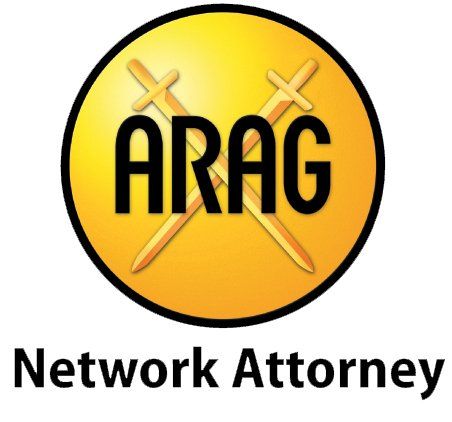PROBATE
PROBATE
The Process
Probate is the court-supervised administration of your estate. It is a process created by state law to transfer assets from your name to your beneficiaries. A personal representative is appointed to handle the estate administration and to distribute assets pursuant to Florida law and the provisions of a Will. The probate process ensures that creditors, taxes, and expenses are paid before distribution of the estate to the beneficiaries. The personal representative is accountable to both the court and estate beneficiaries for his or her actions during the administration. Formal accountings are required under Florida law unless waived.
Florida law requires that an attorney represent the personal representative in all probate proceedings. Our firm is specifically structured for dealing with the probate process. The personal representative is a fiduciary who has legal and financial responsibilities to administer the Will in conformity with Florida law and the terms of your Will. Therefore, the Personal Representative can be personally liable to the beneficiaries (or interested parties, including estate creditors) for any mismanagement and the resulting damages caused to the Estate, beneficiaries, or other interested parties. The Personal Representative can also become liable for taxes of the decedent or of the decedent’s estate. Through your Will you are able to personally select who you would like to serve as the personal representative of your estate.
There are numerous deadlines and time frames that must be complied with during the probate process. The probate process begins when the personal representative or any interested person (which can include creditors) files a Petition for Administration. The Petition is served on all interested parties. Interested parties include the decedent’s surviving spouse, beneficiaries, trustees of any revocable trusts with which the decedent was grantor, and in some instances creditors. The deadline for an individual to object to the validity of a will, qualifications of the personal representative, venue or jurisdiction is twenty (20) days, if they are formally served with the Petition for Administration. After the Petition for Administration is filed and assuming no objections are raised the court will enter an Order admitting the Will and issues Letters of Administration, which empower the personal representative to conduct the estate’s business.
Inventory and Safety Deposit Box
Within sixty (60) days after issuance of the letters of administration, your personal representative is required to file an inventory of all known assets. The inventory is also served on the surviving spouse, heirs at law, residuary beneficiaries and other interested persons who request it in writing. An inventory of any safety deposit box is filed and served upon the individuals listed above, within ten days of the initial opening. Predeath planning can limit or negate the requirements associated with serving inventories and safety deposit box content on such persons.
Creditors
Most everyone passes away with a debt owed to another person or entity, whether it is an electric bill, unpaid taxes, a last month credit card account, or an outstanding mortgage or loan. In order to make potential creditors aware of your death, your personal representative must promptly publish a notice to creditors in a newspaper published in the county where the estate is administered. Creditors who are known or reasonably ascertainable have greater rights. They are entitled to actual service of notice. The personal representative has an obligation under §733.2121(3)(a) of the Florida Statutes to “make a diligent search to determine the names and addresses of creditors of the decedent who are reasonably ascertainable, even if the claims are unmatured, contingent or unliquidated.” Some of the best ways to ascertain possible creditors are to review the decedent’s incoming mail, bank and credit card statements, brokerage accounts, online records kept by the Clerk of Court wherever the decedent owned real property, online records kept by the Florida Department of State such as corporate and financing records, tax records which may reflect assets and liabilities, and documentation saved by the decedent in their home or safe deposit box.
A copy of the Notice to Creditors is actually delivered to all known or discovered creditors. A copy is required to be served on such creditors within three months of the first newspaper publication of the Notice to Creditors. These creditors have until the later of three months after the date of first publication of the notice or 30 days after the date of service of a copy of the notice on the person to file a statement of claim. However, reasonably ascertainable creditors who do not receive notice to creditors have two years to file a claim against the estate. In the event that a claim is timely filed, the personal representative may file a written objection within 30 days. The claimant will then have 30 days to file an independent action against the estate. Often creditors fail to properly follow all of these steps and their claims are thereby barred. If, however, the creditor(s) are successful in bringing an independent action and the court finds that their claim is valid, the personal representative will be required to pay the balances due. If not formally notified through the probate administration, the time within which creditors may file claims against the estate will not expire until the close of the two (2) year period, which begins, with date of death. If a Probate Administration is opened, a personal representative cannot be compelled to make payment on a creditor's claims until the expiration of five (5) months from the first publication of the Notice to Creditors. Interest will, however, accrue as provided in the debt instrument or account agreement. In addition, Florida Statutes state the order in which the expenses of the decedent, including but not limited administration expenses and the obligations of the decedent’s estate, are paid. This is particularly important if the liabilities of the estate exceed the total assets (the estate is insolvent). In an insolvent estate, various assets may be exempt from the claims of creditors, and legal counsel should be sought to preserve such assets. Homestead and exempt property are statutorily defined in Florida.
Perfecting Rights of Spouses and Heirs
Heirs and spouses may have rights in a decedent’s estate and its assets that are superior to those of other interested persons. These rights may include the right to homestead property, certain exempt property and, in the case of a surviving spouse, to either claim an “elective share” or to be considered a pretermitted spouse. Children can also be considered pretermitted, if they are born after the execution of certain wills and trusts. Generally, a pretermitted spouse or child are entitled to their “intestate” share of a decedent’s estate, while a surviving spouse claiming the elective share is entitled to a 30% share or statutory equivalent through various types of trusts. We are happy to represent spouses and heirs evaluates their rights in a decedent’s estate, which typically involves an evaluation of legal documents and the title of assets.
Litigation
As individuals live longer, there is an increasing potential for litigation to arise while administering trusts and estates. Most attacks on wills and testamentary instruments arise based upon the argument that mental disorders caused an individual to lack capacity or that undue influence interfered with one’s testamentary wishes. The breakdown of family relationships, which can be the result of second marriages and geographic dispersal of siblings, has also contributed to the increase in contested probate proceedings. Personal representatives and trustees can also be accused of breaches of duty while serving their role, where they may be accused of self-dealing, improper investment, breach of their duties of loyalty and care, and improper accounting.
Petition for Discharge
An order of Discharge is necessary to release the personal representative from its duties, brings the estate proceeding to a conclusion, and release any surety on any bond. Generally, a petition for discharge and a final accounting (if waivers are not received) shall be filed within in 12 months after the Letters of Administration are issued. The Petition for Discharge must include various items, including but not limited to, how any creditors’ claims were handled, a plan of distribution, the amount of compensation paid to the personal representative, attorneys, accountants, etc. Any objections to the Petition, Final Accounting and/or Plan of Distribution must be filed within 30 days. In addition, within 90 days of filing an objection, the objection party shall serve a notice of hearing, or the objection is abandoned. If a federal estate tax return is filed, the deadline to file the petition is 12 months from the date the return is filed.
Summary Administration
For probate estates having less than $75,000 of non-exempt assets, Florida law provides a simplified probate procedure, known as summary administration.
Need Help? Start Here
Contact Us
Thank you for contacting us.
We will get back to you as soon as possible
We will get back to you as soon as possible
Oops, there was an error sending your message.
Please try again later
Please try again later


Law Offices of Preston H Oughton
301 W. Bay Street, Suite 1424
Jacksonville, FL 32202
Phone: (904) 854-6336
Web Design by Times Union Media, All Rights Reserved


